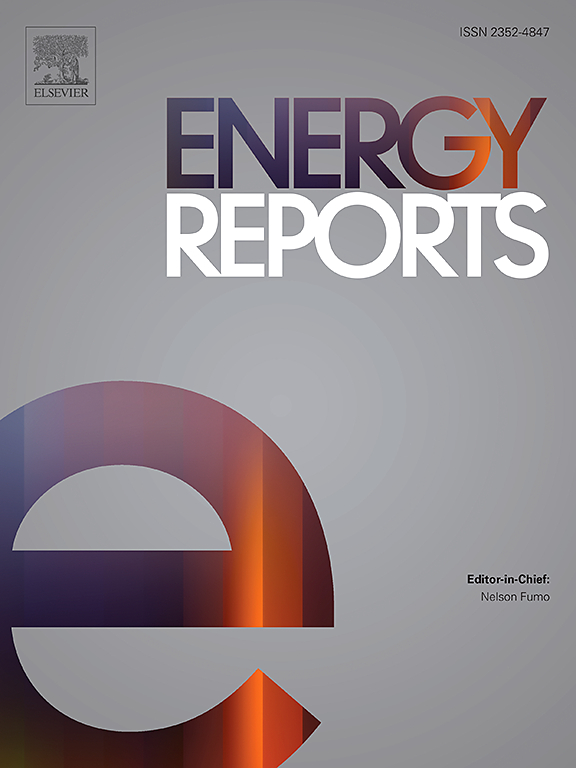A coordinated AC-DC recovery strategy for suppressing continuous commutation failures in HVDC transmission
IF 5.1
3区 工程技术
Q2 ENERGY & FUELS
引用次数: 0
Abstract
Summary
Addressing the low sensitivity of DC current regulation in traditional linear low-voltage current limit control schemes, this paper proposes a nonlinear AC/DC-VDCOL control strategy based on weighted averaging. This strategy adjusts system operating characteristics by using a weighted average of DC voltage and AC commutation voltage as input. Simulation results demonstrate that the designed control strategy can effectively limit DC current during fault conditions, shorten the recovery process from commutation failures, suppress consecutive commutation failures, maintain power transmission on system lines, and enhance the system's transient recovery characteristics. Based on the improved nonlinear VDCOL control strategy, a coordinated recovery strategy for dynamic amplitude-limited voltage support based on the receiving-end grid's Voltage Source Converter (VSC) is further designed. This strategy employs a reactive power priority control method to enhance the reactive power output capability of the VSC converter station. Simulation results indicate that the coordinated recovery strategy combining the improved nonlinear VDCOL on the DC side with the dynamic amplitude limitation of the VSC on the AC side can effectively suppress consecutive commutation failures, facilitate faster system recovery, provide voltage support to the system, and further enhance the stability of the HVDC system and the receiving-end grid.
一种抑制高压直流输电连续换流故障的交直流协调恢复策略
摘要针对传统线性低压限流控制方案中直流电流调节灵敏度低的问题,提出了一种基于加权平均的非线性AC/DC- vdcol控制策略。该策略通过使用直流电压和交流换流电压的加权平均值作为输入来调整系统的工作特性。仿真结果表明,所设计的控制策略能够有效地限制故障条件下的直流电流,缩短换相故障恢复过程,抑制连续换相故障,维持系统线路上的电力传输,增强系统的暂态恢复特性。在改进的非线性VDCOL控制策略的基础上,进一步设计了基于接收端电网电压源变换器(VSC)的动态限幅电压支持协调恢复策略。该策略采用无功优先控制方法,提高了VSC换流站的无功输出能力。仿真结果表明,将改进的直流侧非线性VDCOL与交流侧VSC的动态限幅相结合的协调恢复策略可以有效抑制连续换相故障,加快系统恢复速度,为系统提供电压支撑,进一步增强高压直流系统和接收端电网的稳定性。
本文章由计算机程序翻译,如有差异,请以英文原文为准。
求助全文
约1分钟内获得全文
求助全文
来源期刊

Energy Reports
Energy-General Energy
CiteScore
8.20
自引率
13.50%
发文量
2608
审稿时长
38 days
期刊介绍:
Energy Reports is a new online multidisciplinary open access journal which focuses on publishing new research in the area of Energy with a rapid review and publication time. Energy Reports will be open to direct submissions and also to submissions from other Elsevier Energy journals, whose Editors have determined that Energy Reports would be a better fit.
 求助内容:
求助内容: 应助结果提醒方式:
应助结果提醒方式:


